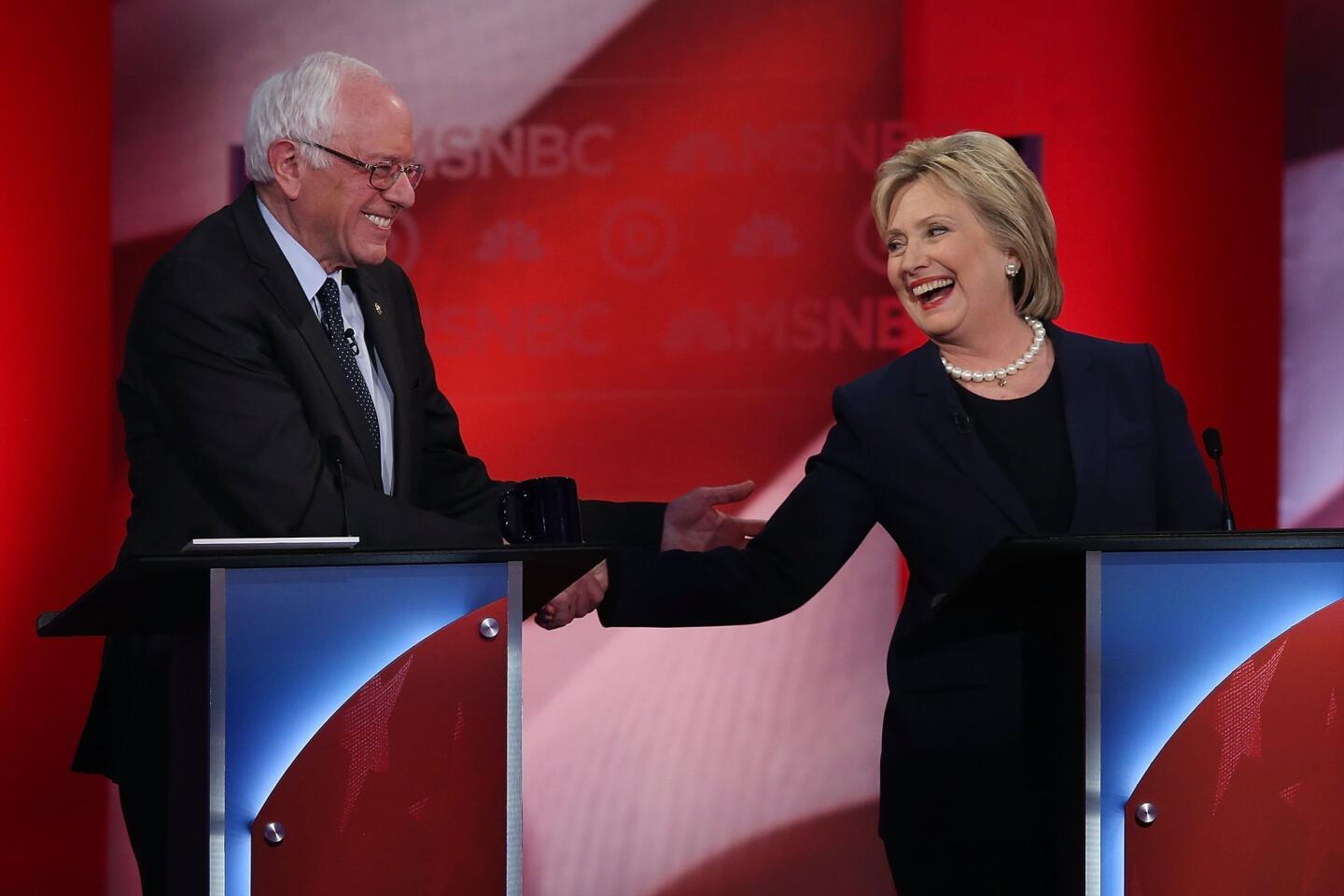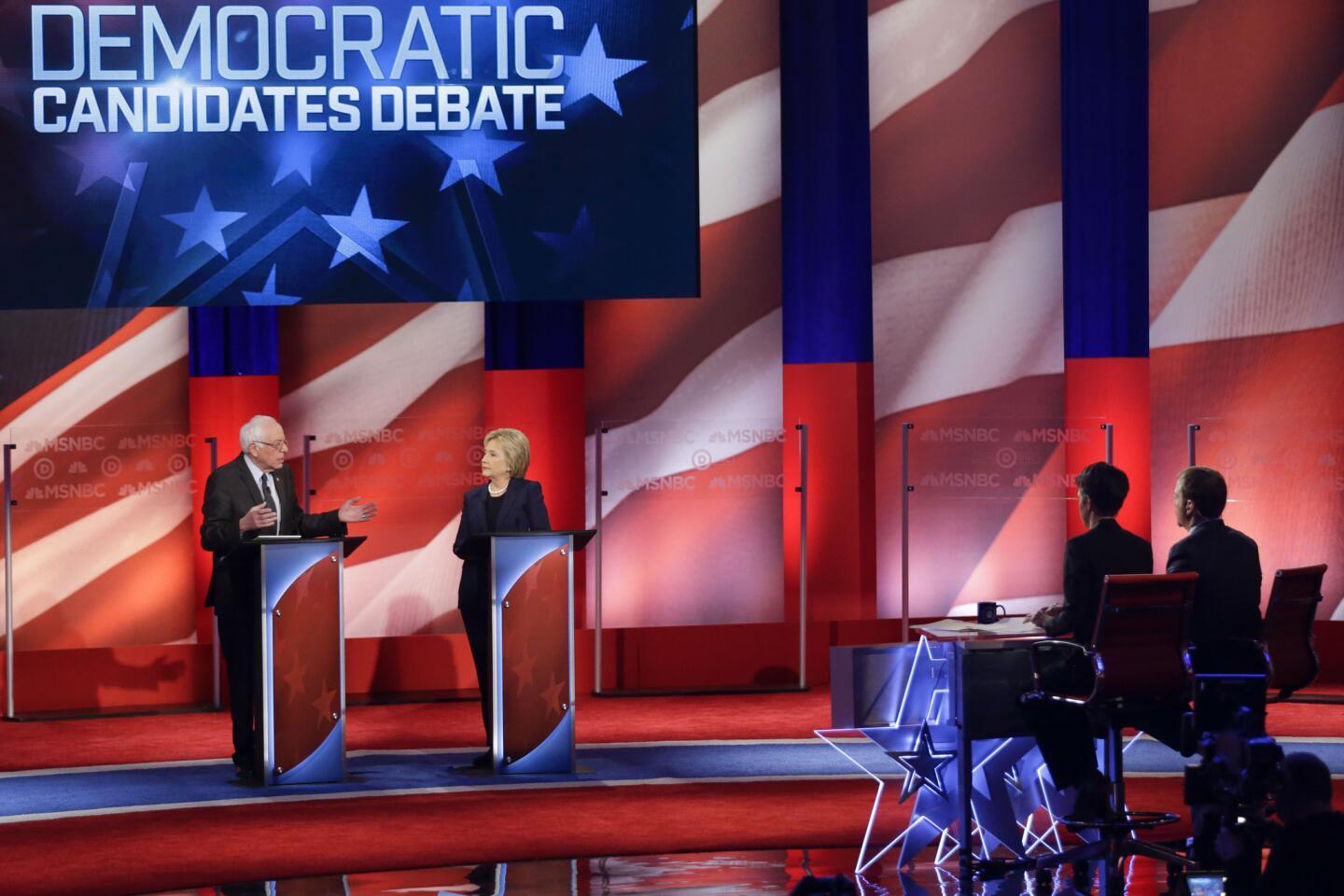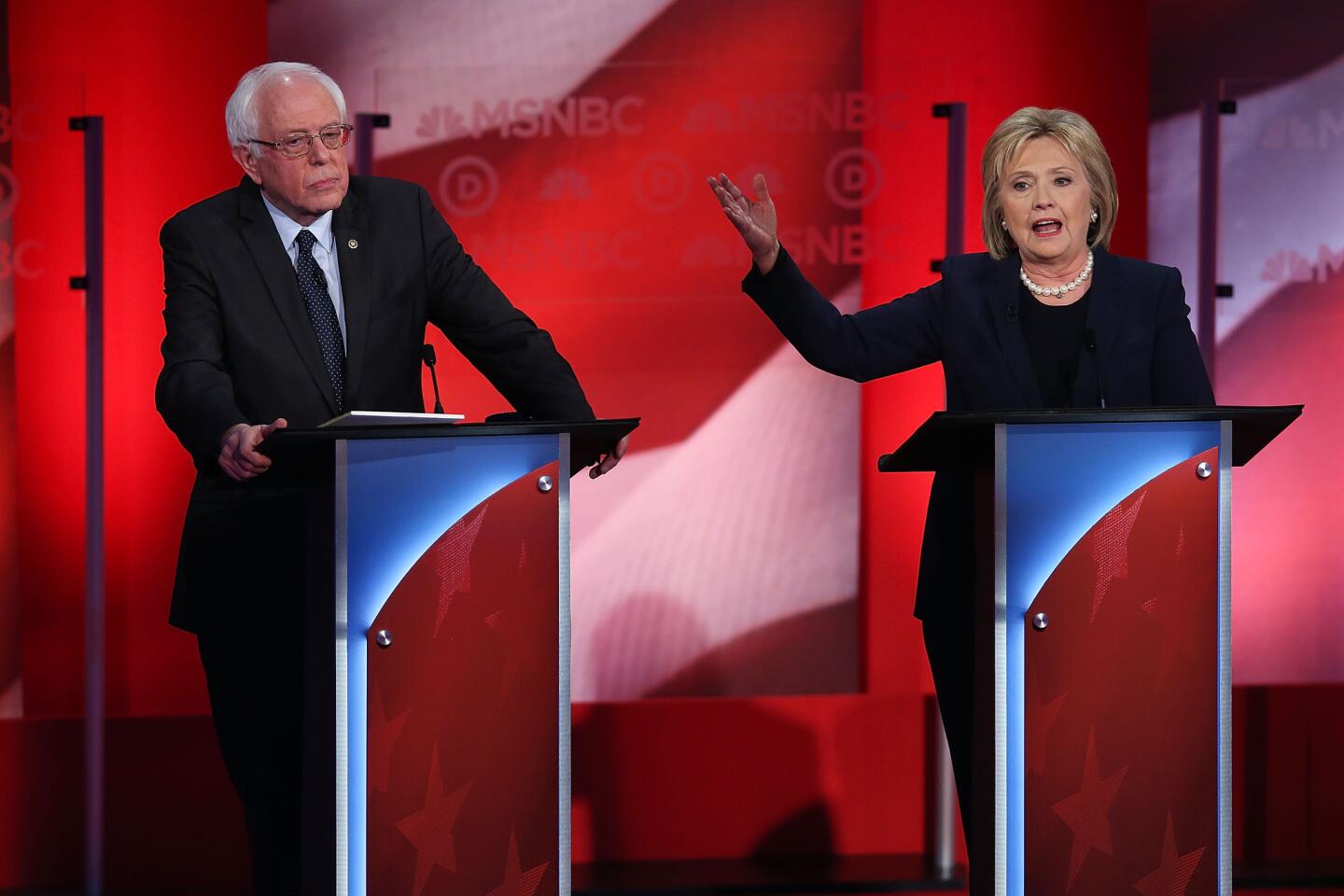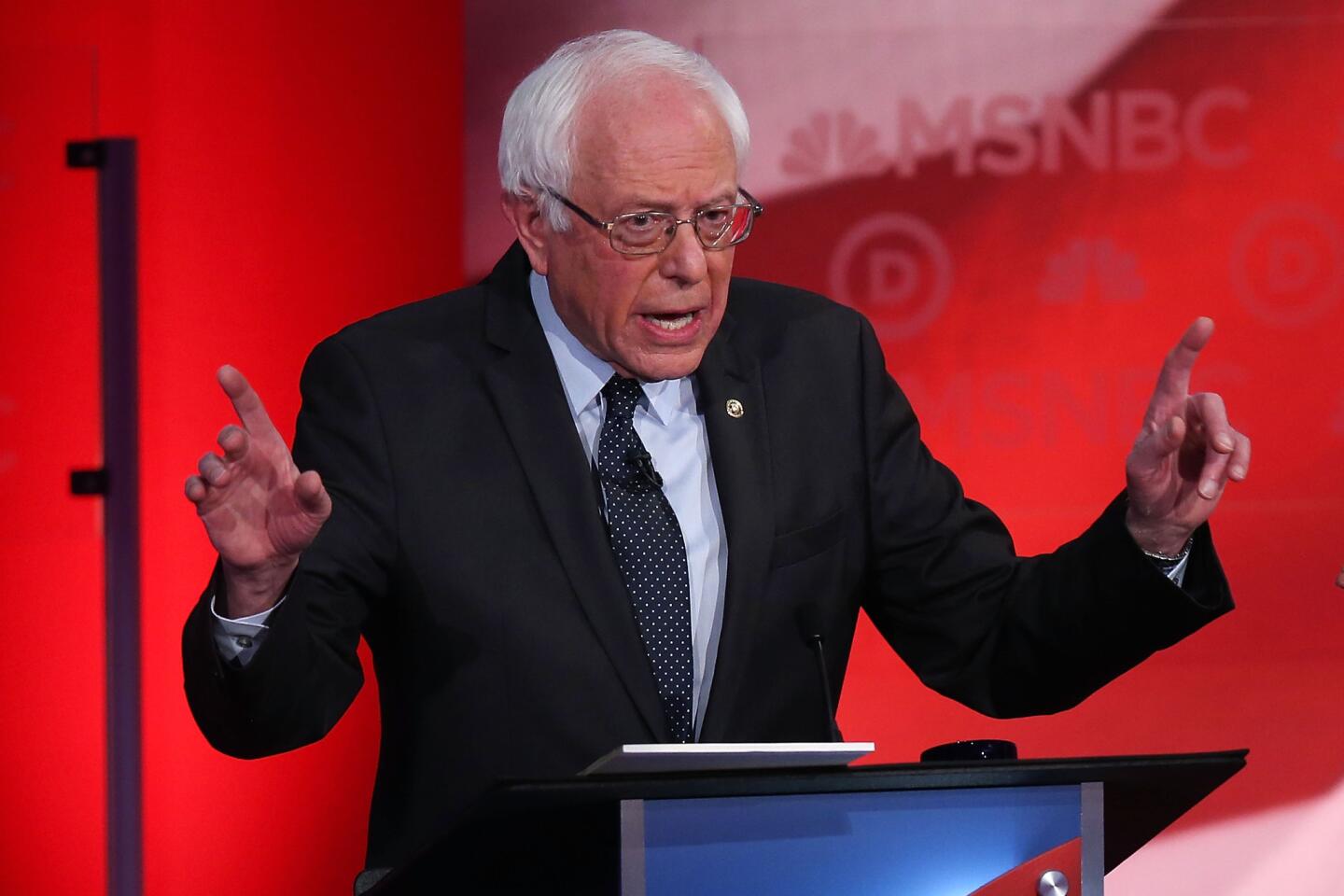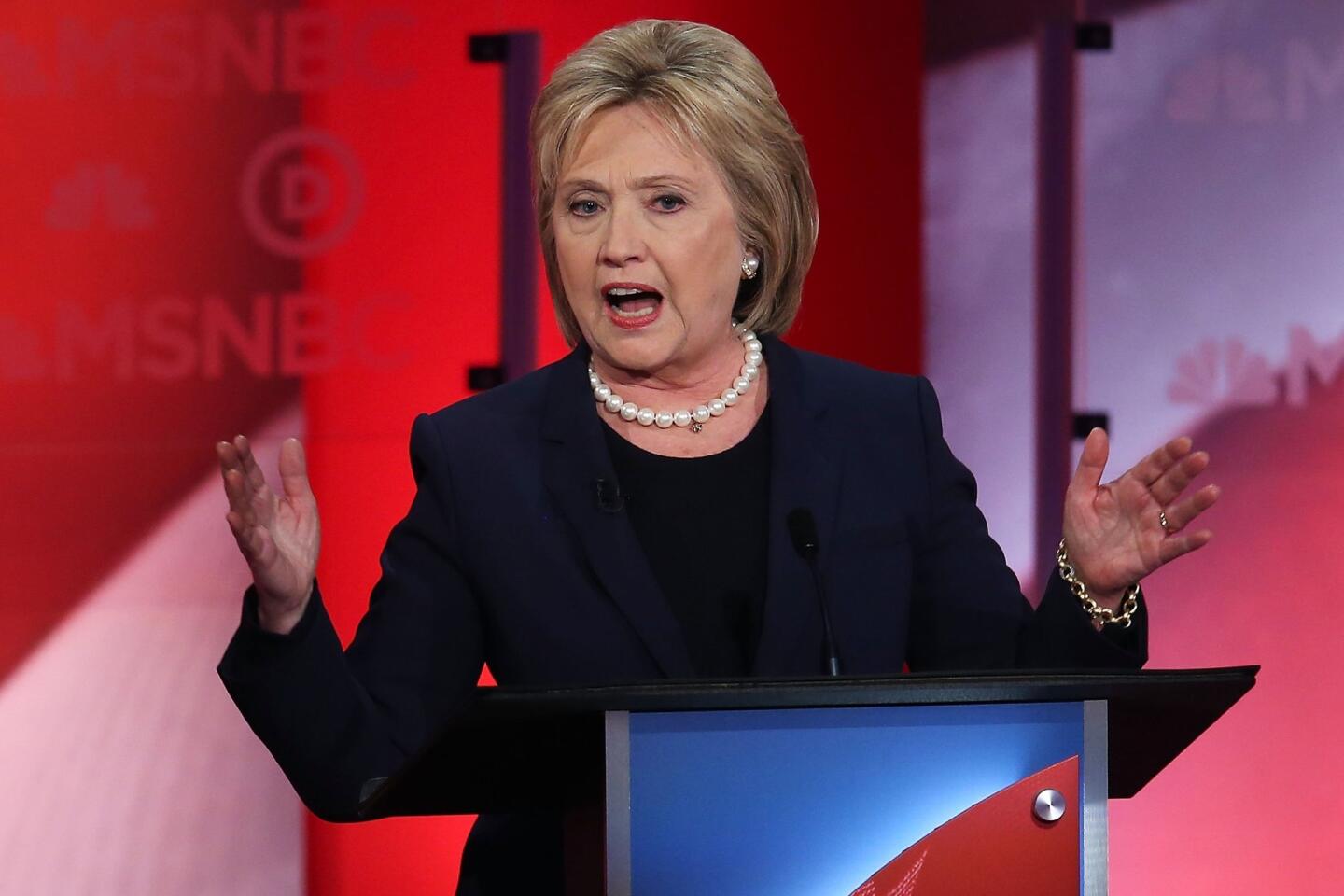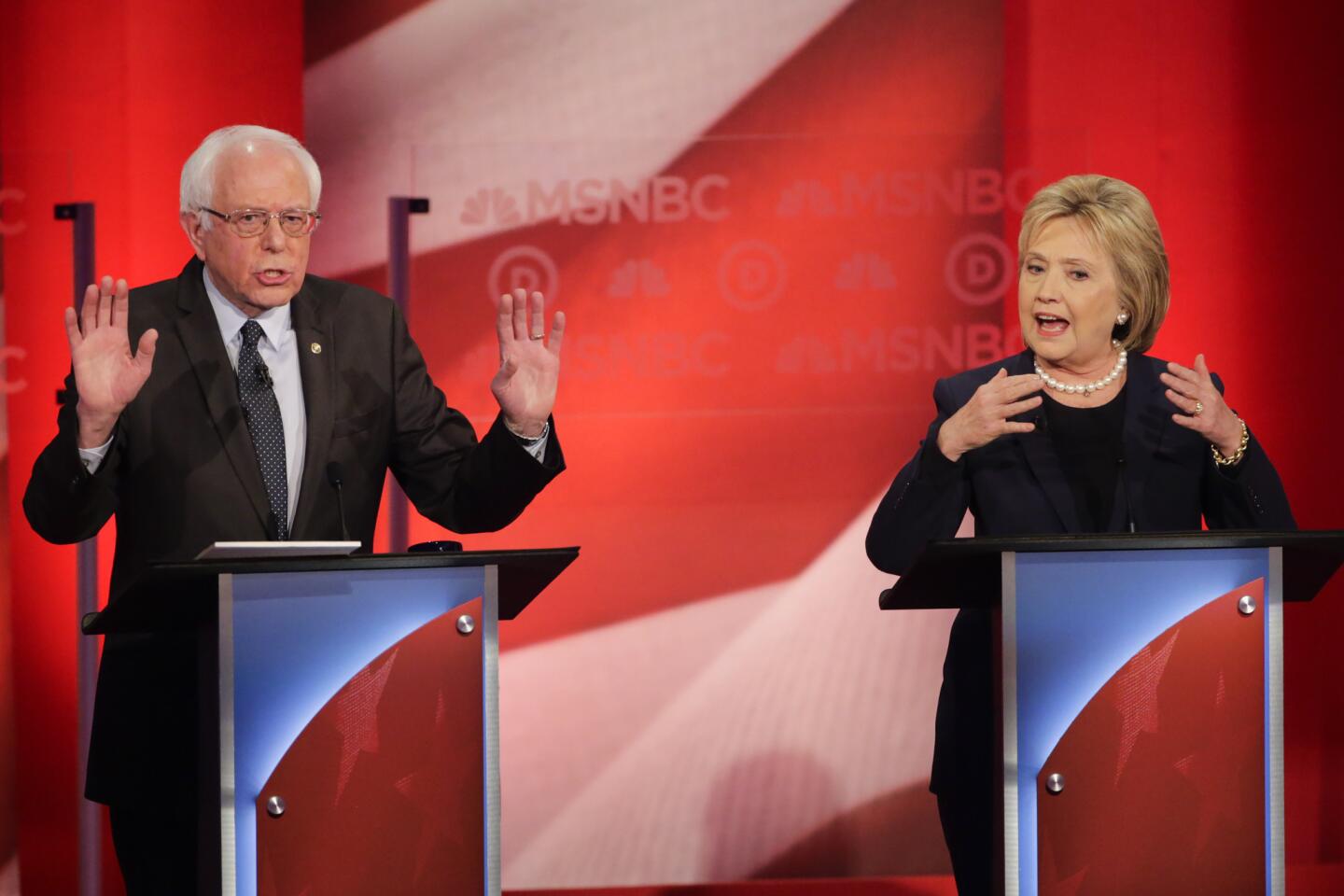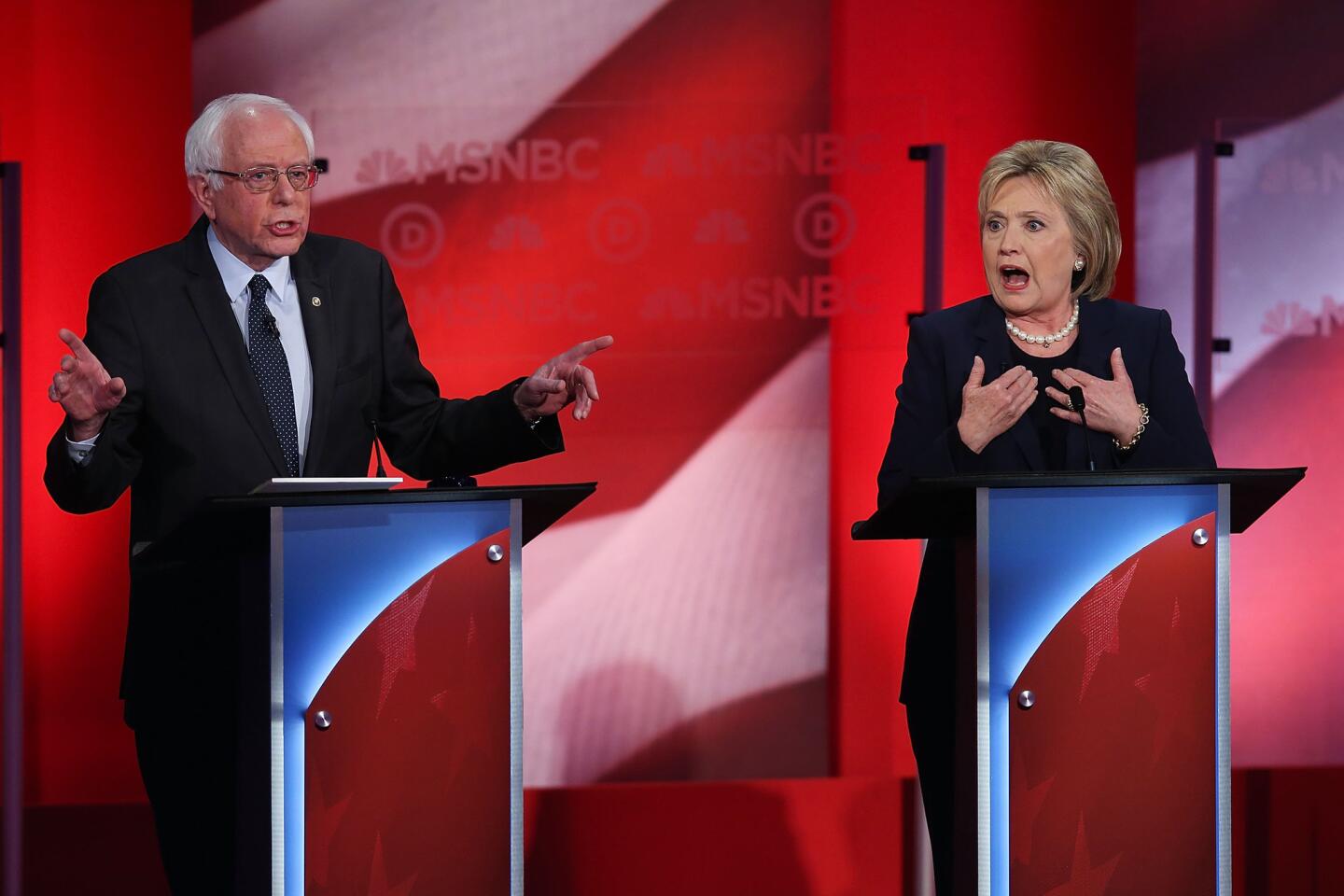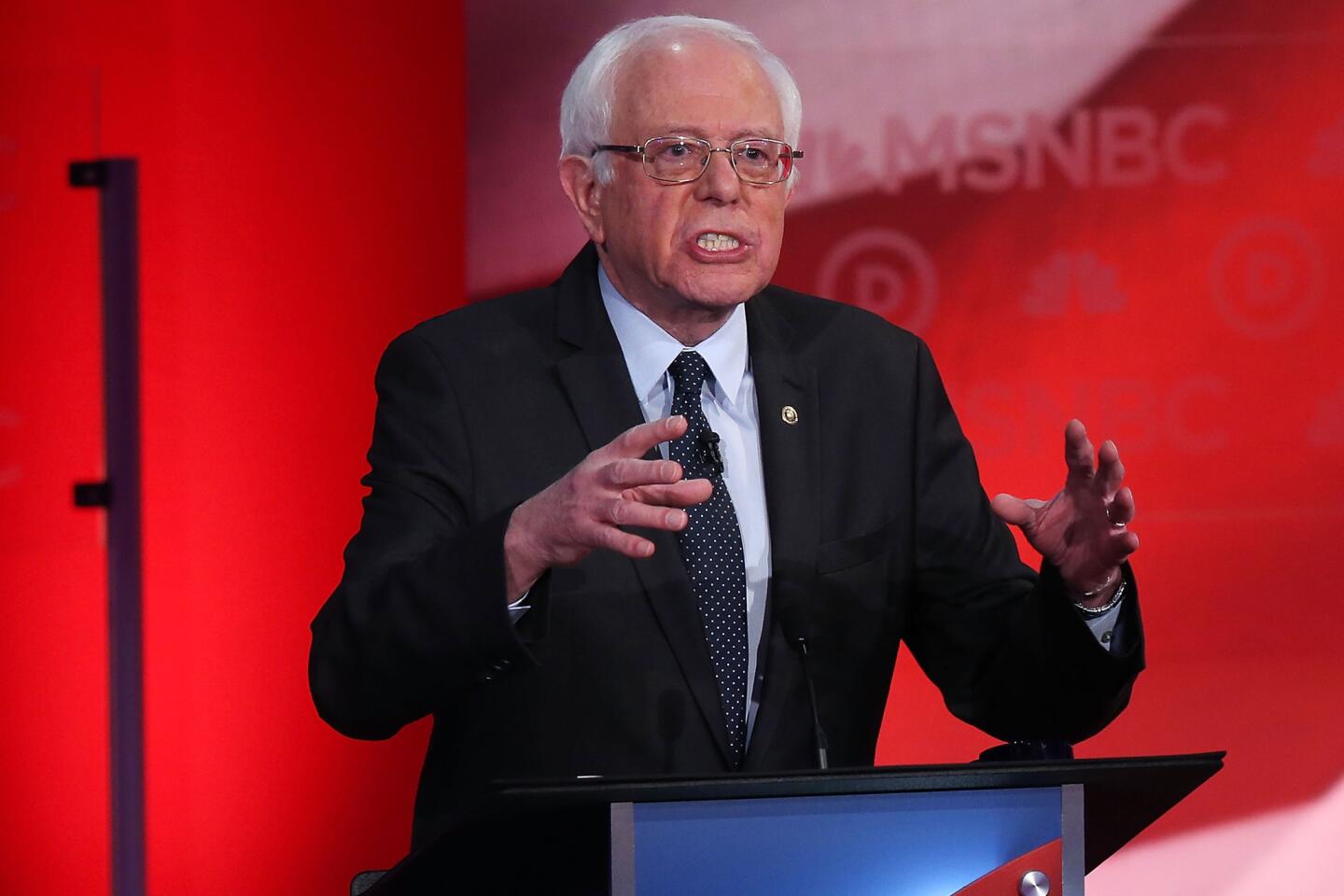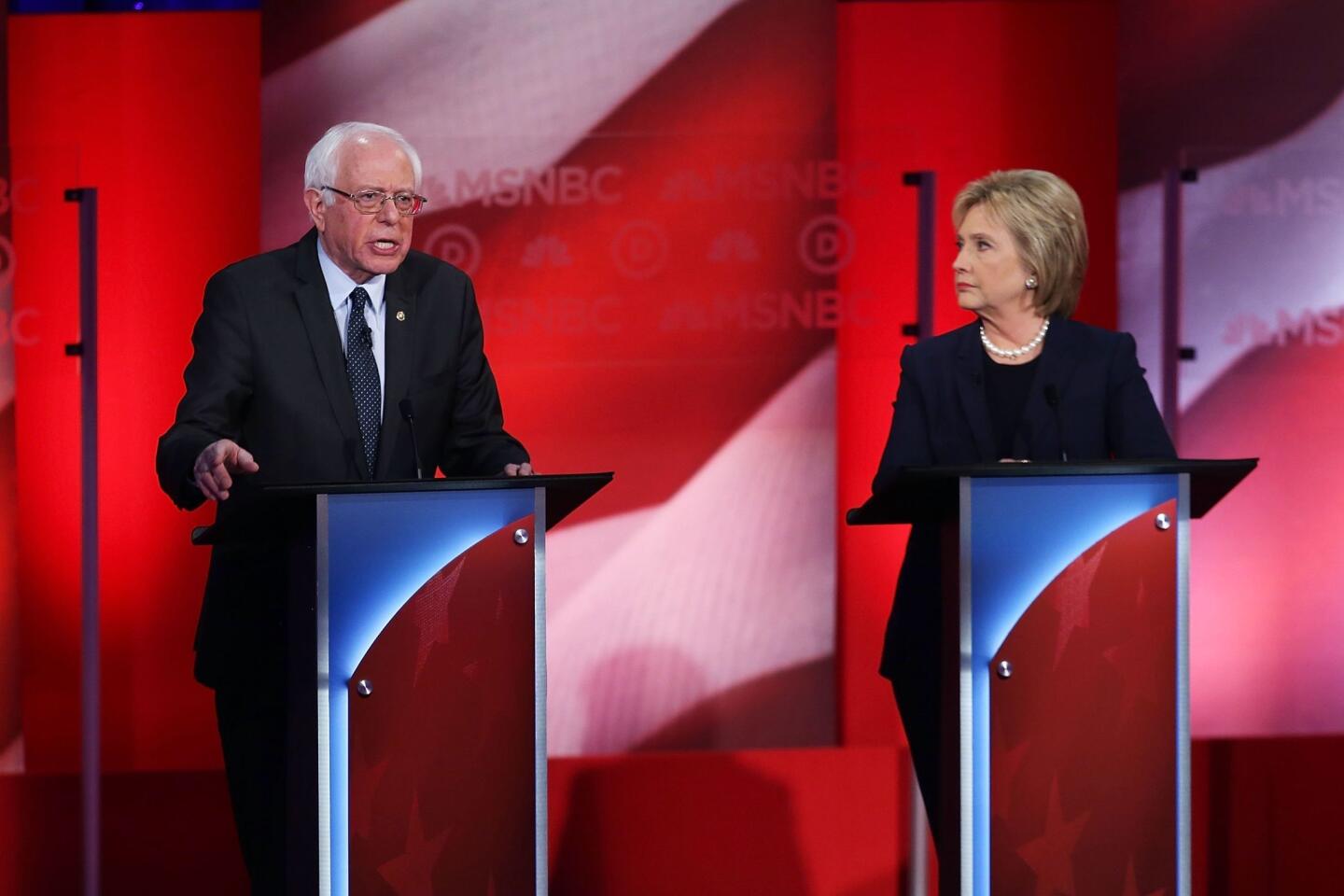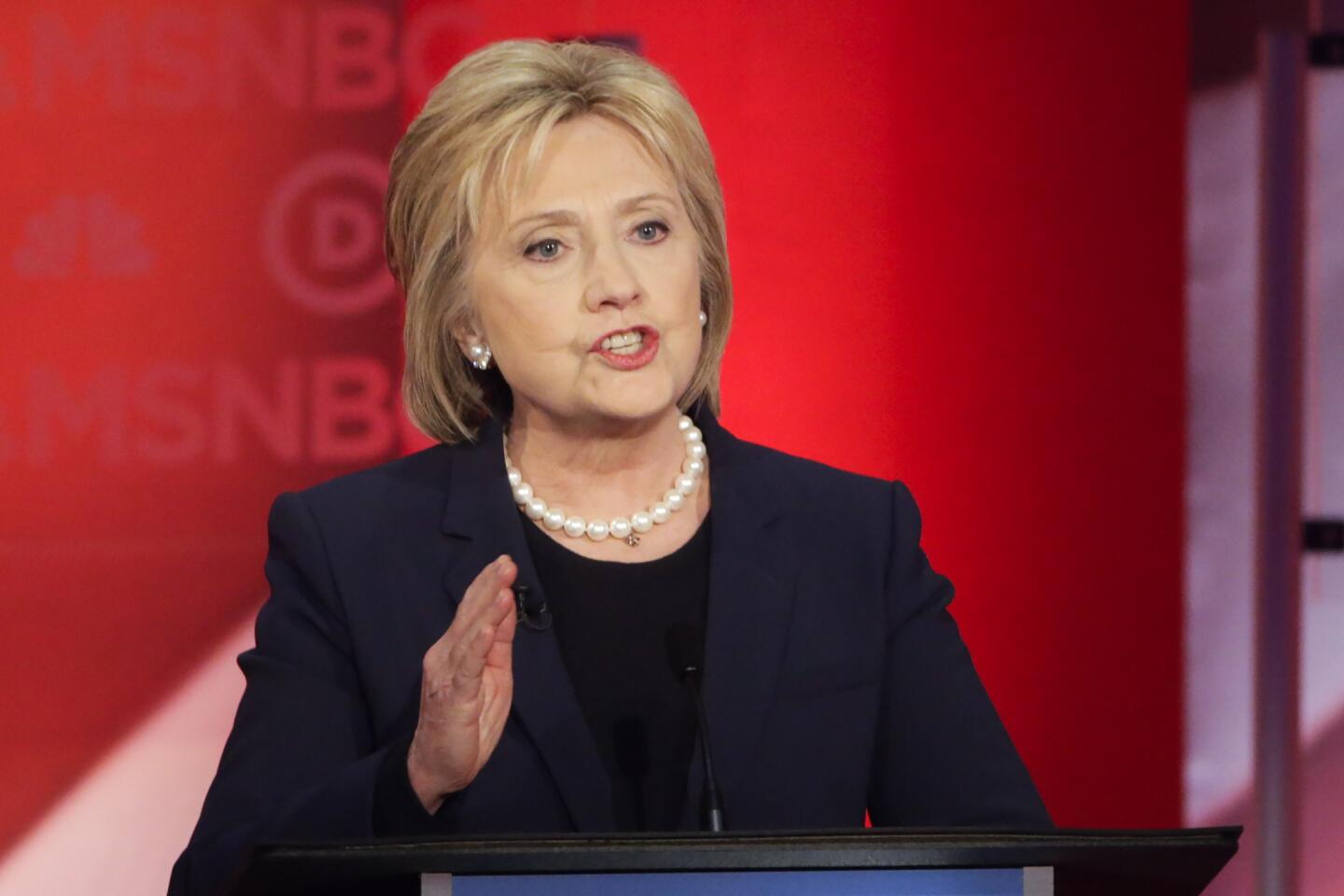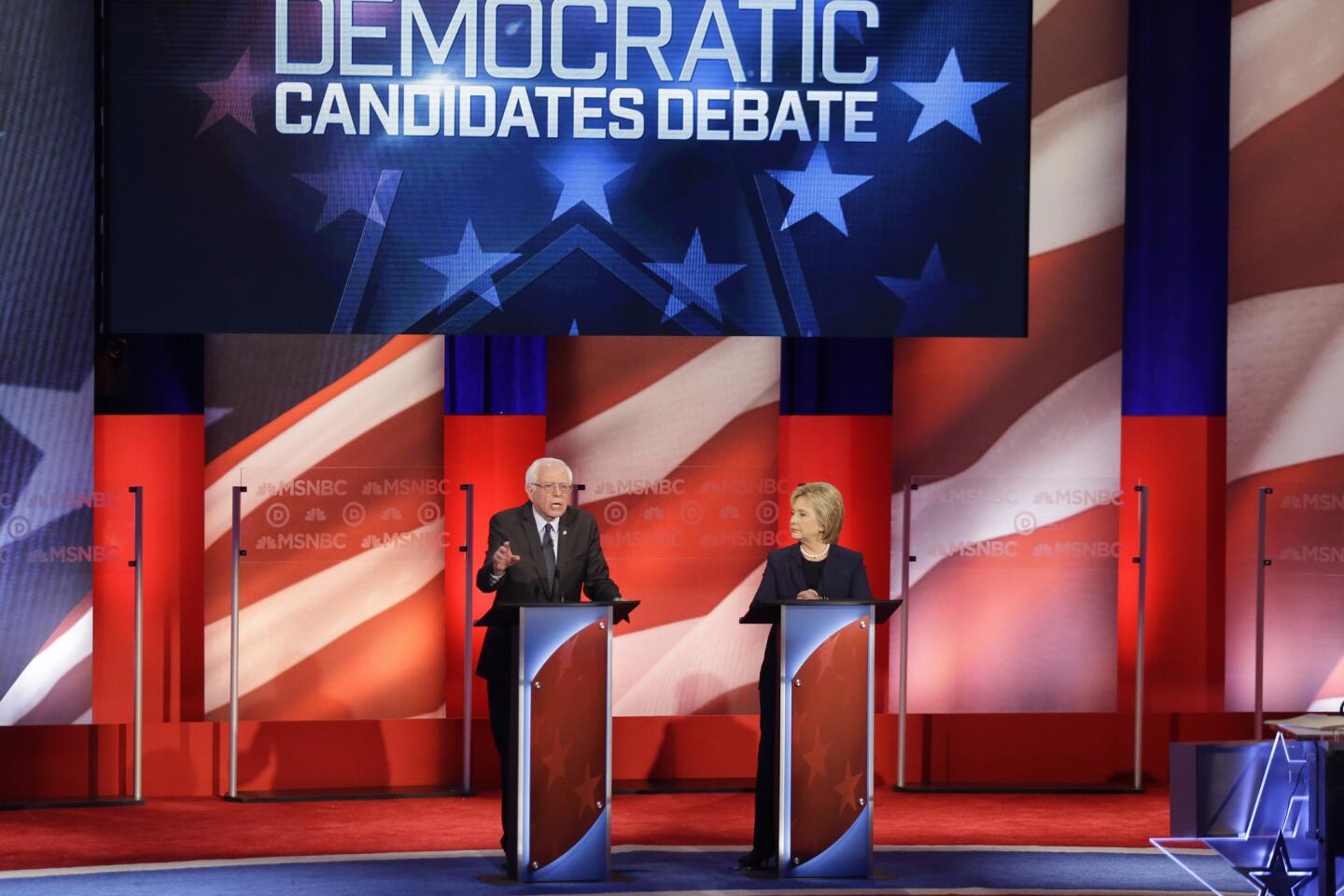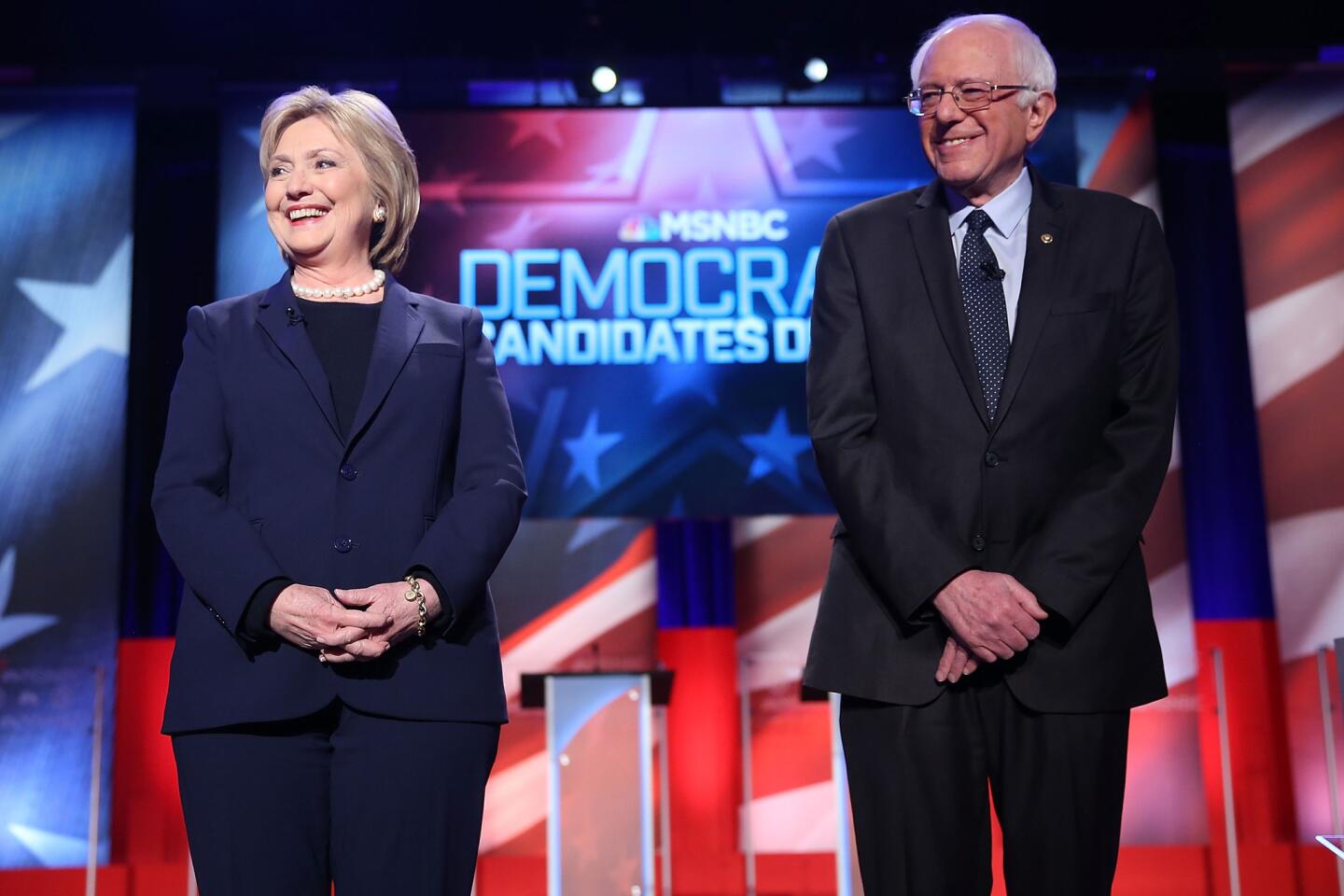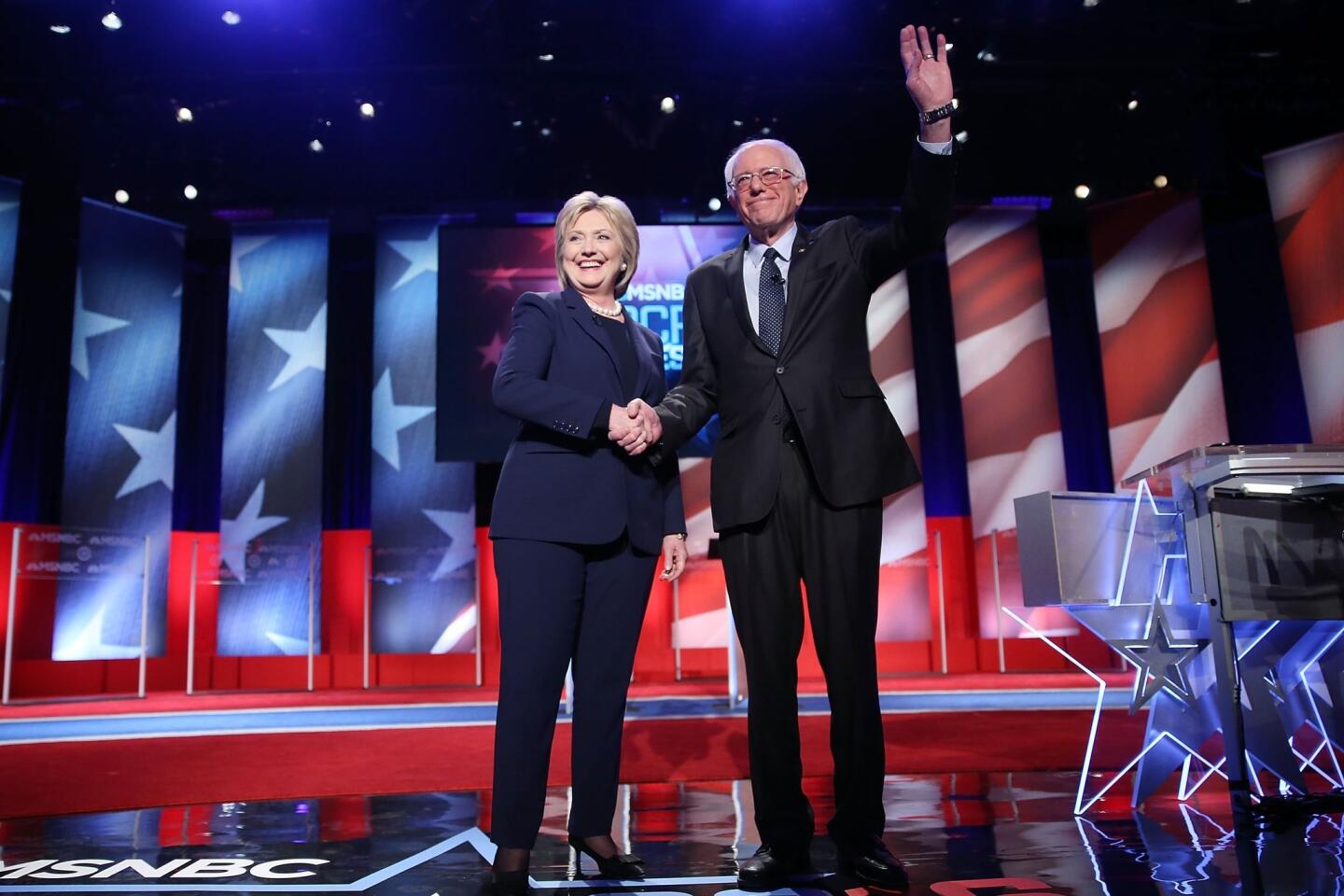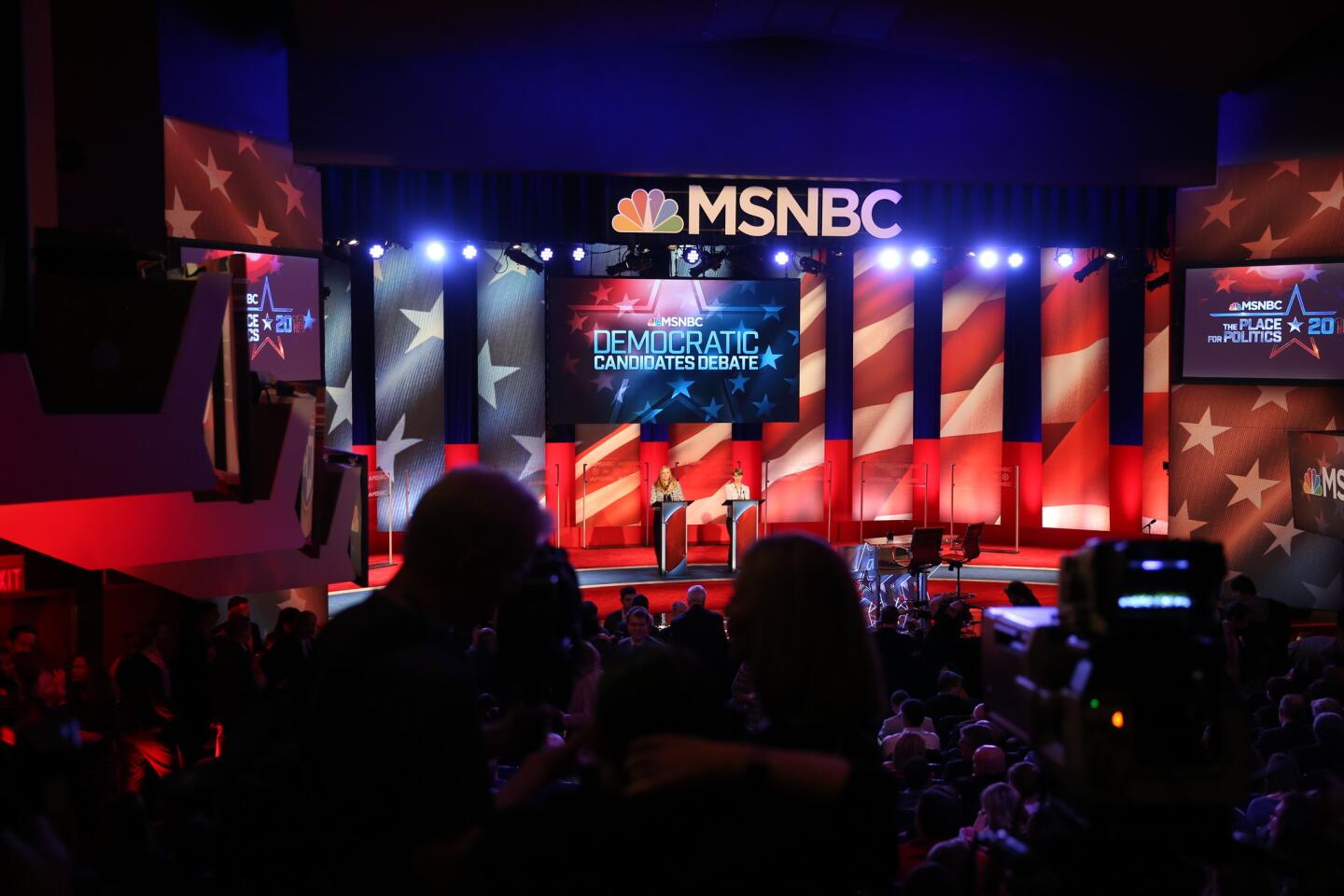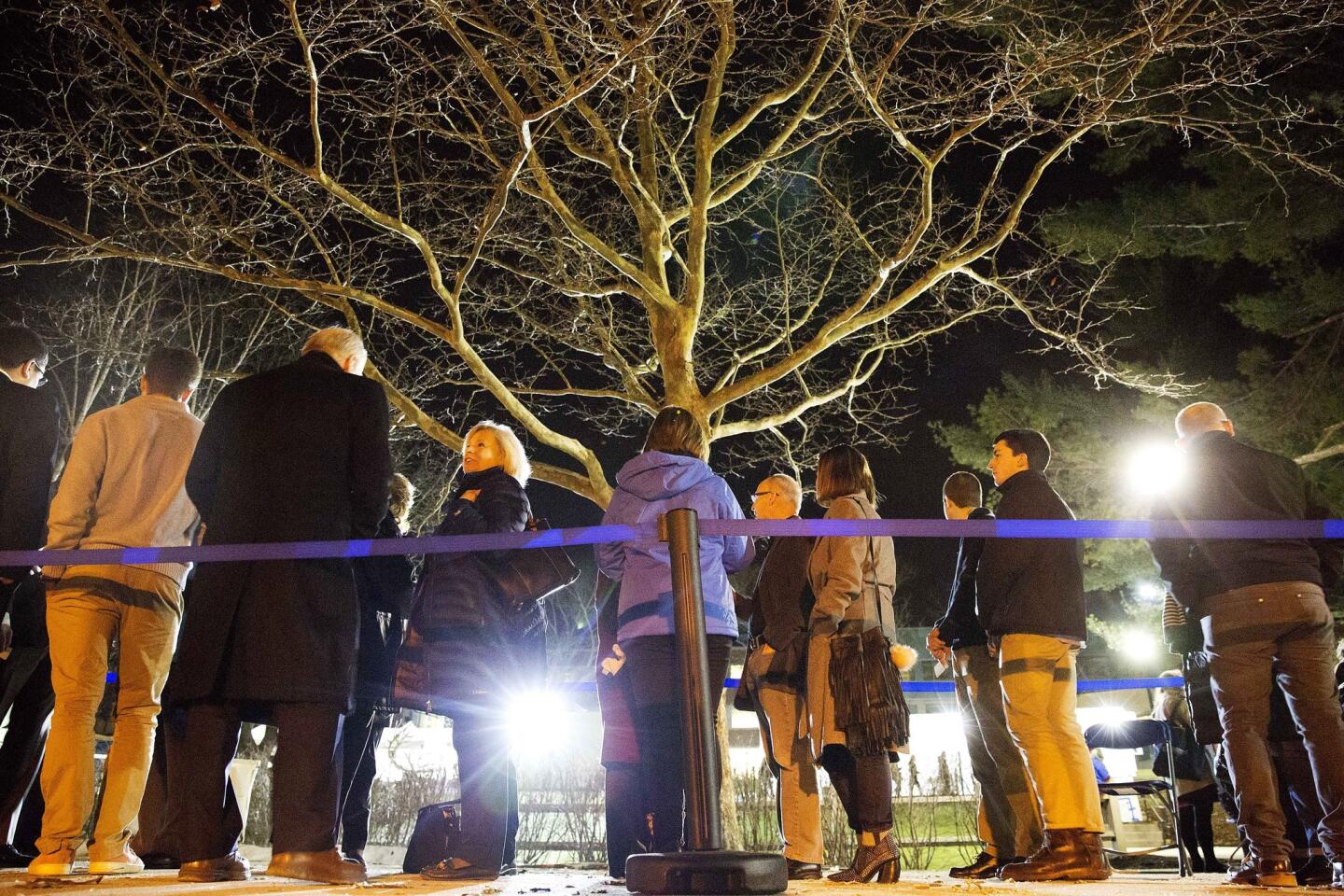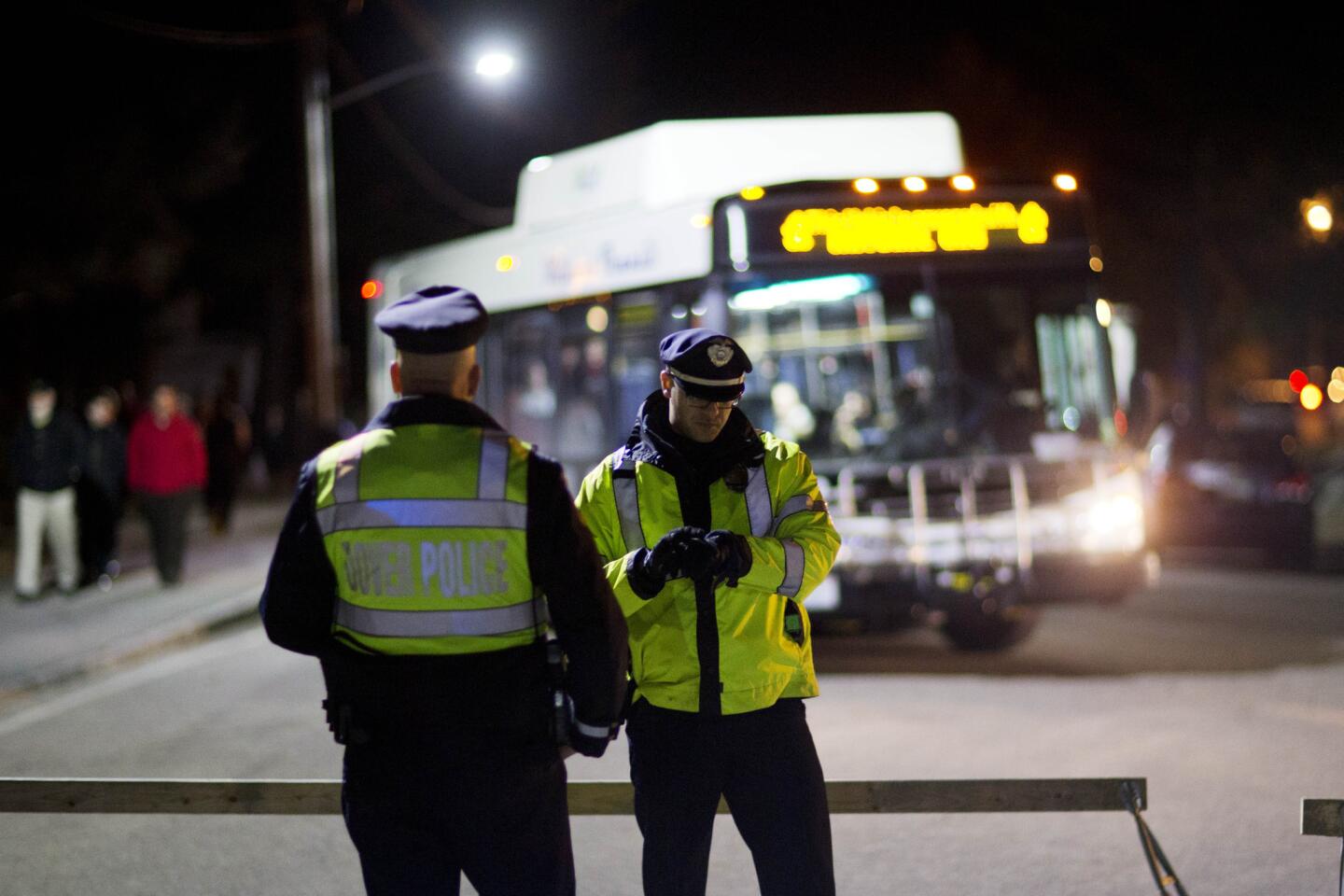Sanders and Clinton clash in debate on foreign policy and progressivism
- Share via
Reporting from Durham, N.H. — A long-simmering battle between Hillary Clinton and Bernie Sanders burst into public view Thursday, as the former secretary of State denounced her rival for what she said was a campaign of “innuendo” and “insinuation” amid a continuing fight over each other’s progressive credentials.
The first one-on-one debate between the Democratic presidential hopefuls delivered fireworks immediately, as Clinton delivered a spirited rebuke to the charge Sanders has been making on the campaign trail that she is not a genuine progressive.
A more contentious exchange unfolded when Sanders called his rival the candidate of “the establishment,” citing contributions that a super PAC supporting Clinton has received from Wall Street.
“Big money controls the political process in this country,” he said.
Clinton sternly asked Sanders to be clear about what the comment was meant to imply, suggesting he was betraying his promise to run a positive campaign with what she called an “artful smear.”
TRAIL GUIDE: All the latest news on the 2016 presidential campaign >>
“Time and time again, by innuendo, by insinuation, there is this attack that he is putting forth, which really comes down to -- you know, anybody who ever took donations or speaking fees from any interest group has to be bought,” she said. “I just absolutely reject that, Senator. And I really don’t think these kinds of attacks by insinuation are worthy of you. And enough is enough. If you’ve got something to say, say it directly.”
Sanders did not respond directly, but listed a series of examples of how the political system in his view was “rigged.”
“There is a reason why these people are putting huge amounts of money into our political system. And in my view, it is undermining American democracy,” he said.
As the debate continued, the two moved into another intense exchange over foreign policy, with Sanders appearing ill at ease as the moderators, Rachel Maddow and Chuck Todd, pressed him to detail his views.
Clinton sought to raise doubts about whether Sanders was prepared to take on the responsibilities of commander in chief. She pointed to concerns that national security experts have raised about Sanders’ views, particularly his suggestion that Iranian troops could help resolve the civil war in Syria and that Saudi Arabia and Iran could work together on military intervention.
“When New Hampshire voters go on Tuesday to cast your vote, you are voting both for a president and a commander in chief,” Clinton said. “And there is no way to predict what comes in the door of that White House from day to day that can pose a threat to the United States or one of our friends and allies, and I think this is a big part of the job interview that we are all conducting with the voters here.”
Sanders conceded that Clinton has more experience, but shot back, “experience is not the only point; judgment is. And once again, back in 2002, when we both looked at the same evidence about the wisdom of the war in Iraq, one of us voted the right way, and one of us didn’t.”
The meeting on the campus of the University of New Hampshire, televised nationally by MSNBC, comes days after the combatants finished in a virtual tie in the Iowa caucuses -- Clinton claimed the narrowest of victories there – and as the unexpectedly competitive nomination contest appears set to move beyond New Hampshire, where Sanders currently boasts a double-digit lead in public polling.
In the days leading up to the debate, each has delivered sharp critiques of the other’s claim to be able to advance the priorities they share. The volleys continued in the debate, as Clinton delivered a spirited response to the charge Sanders has been making on the campaign trail that she is not a genuine progressive.
“It’s really caused me to wonder who is left in the progressive wing of the Democratic Party,” Clinton said. “Under his definition, President Obama is not progressive because he took donations from Wall Street.”
Vice President Joe Biden wouldn’t qualify, either, because he supported the Keystone XL pipeline, she added, and the late Sen. Paul Wellstone of Minnesota, a revered liberal, wouldn’t make the cut because he voted for the Defense of Marriage Act.
Sanders, too, could face problems with such labels, she added, citing his votes: “I don’t think it was particularly progressive to vote against the Brady bill five times,” she said. “I don’t think it was progressive to vote to give gun makers and sellers immunity. I don’t think it was progressive to vote against Ted Kennedy’s immigration reform.”
Sanders wouldn’t yield, noting that Clinton has called herself a moderate in the past.
“There’s nothing wrong with being a moderate,” he said, but, he added, a person cannot be both a moderate and a progressive at the same time.
Throughout the debate, Clinton was the aggressor, arguing from the opening moments that Sanders’ goals, including a Medicare-for-all health system and free public college, were laudable but unrealistic.
“I’m not making promises that I cannot keep,” she said, later adding that a true progressive was “someone who makes progress.”
Without former Maryland Gov. Martin O’Malley, who left the race this week, sharing the stage and speaking time, Sanders also faced more extensive questioning about his own record. Though he has complained about the influence of money in politics, for instance, he was asked why he was not participating in the public financing system for elections. He called it “antiquated,” though he said he had considered it.
Clinton again faced questions about issues that have dogged her campaign for months, from her use of a personal email server to paid speeches – an issue that had tripped her up the night before.
But she insisted she was the most electable candidate, implying that Sanders might not be able to withstand the “withering onslaught” he’d face in a general election campaign.
“I’ve been vetted. There’s hardly anything you don’t know about me,” she said.
Sanders said he would be the strongest candidate at the top of the ticket, saying enthusiasm for his candidacy would lift the entire party – even if he himself has not always identified as a Democrat.
“If there is a large voter turnout, not only do we retain the White House, but I think we regain the Senate. We win governors’ chairs up and down the line,” he said.
After the intense clashes, the temperature dropped later in the debate. The candidates weighed in on a range of issues, from the death penalty, which Sanders opposes in all cases, but Clinton would support in some, to the water crisis in Flint, Mich. Clinton announced she would travel there Sunday – a break from her schedule in New Hampshire that aides had said would be uninterrupted.
The Democratic race could be at a tipping point this week, as both campaigns’ postures show. Clinton, still the favorite in the nomination fight overall, is eager to cut short a potentially costly extended battle. To do so, she wants to deprive the Vermont senator of the momentum he would gain with a big win here.
But while both candidates are campaigning aggressively here through the first-in-the-nation primary next Tuesday, Sanders’ lead in his neighboring state has both candidates increasingly looking beyond New Hampshire. Former President Clinton will get a head start on the campaign in Nevada, where Democratic caucuses will take place Feb. 20.
Sanders has also sought to manage expectations, which have threatened to rise sky-high for him. Despite claims of a home-field advantage for him, he says, Clinton is the one who has campaigned and won here before.
Times staff writer Evan Halper in Durham contributed to this report.
Follow @mikememoli for more 2016 campaign news.
ALSO:
As Clinton seeks to break the glass ceiling, young feminists shrug
Far from the Mexican border, immigration remains a hot campaign issue
Latinos turned out in Iowa in record numbers, poll indicates
More to Read
Get the L.A. Times Politics newsletter
Deeply reported insights into legislation, politics and policy from Sacramento, Washington and beyond. In your inbox three times per week.
You may occasionally receive promotional content from the Los Angeles Times.
